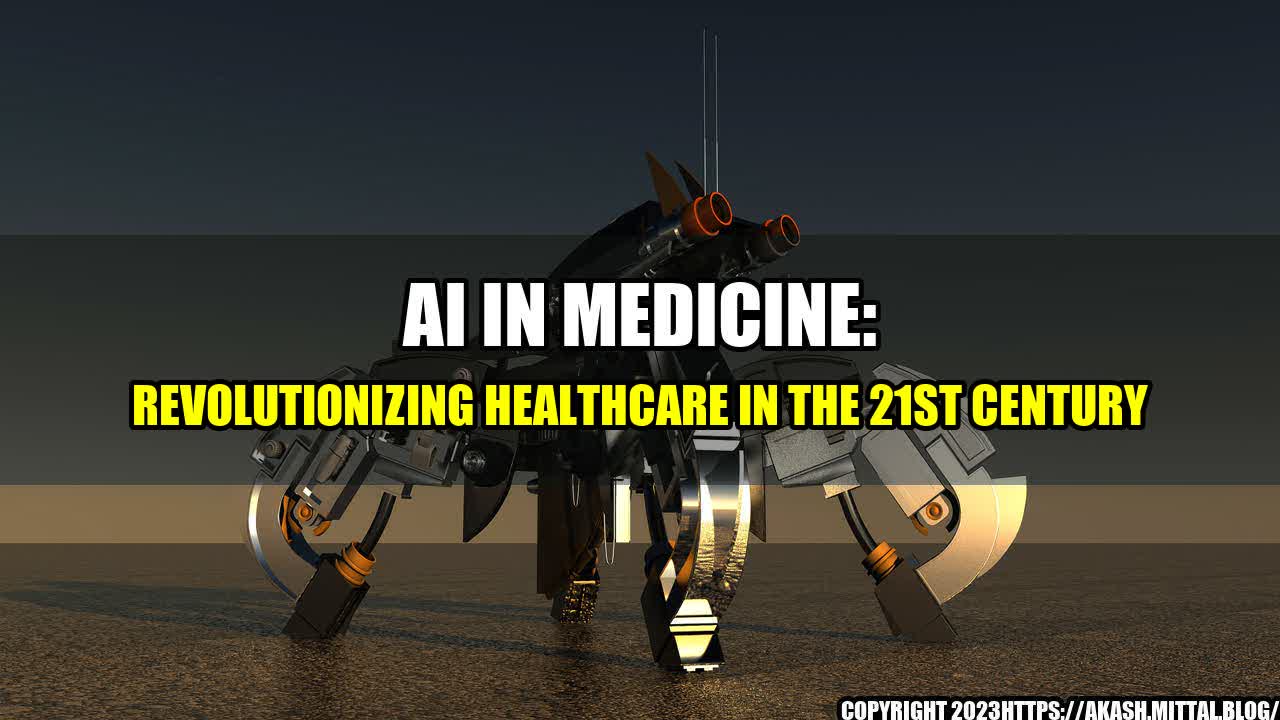
Introduction:
On a cold winter night, a hospital ward was bustling with activity. A young resident physician, Dr. Julia, was on duty, attending to a critically ill patient. She had been on call for over 24 hours and was exhausted. As she was reviewing the patient's chart, she noticed that there were a few missed lab results. She immediately contacted the lab to get the results, but it would take an hour to get them back. The patient's condition was deteriorating rapidly, and she needed the results urgently to make a life-saving decision. Suddenly, an idea struck her. She had heard about an AI-powered software recently that could analyze lab results and provide real-time insights. She quickly downloaded the software and inputted the patient's data. Within seconds, the software provided a diagnosis, which helped Dr. Julia make an informed decision. The patient's condition stabilized, and Dr. Julia saved a life that night.
This is just one of the many examples of how AI is revolutionizing healthcare in the 21st century. According to a report by Accenture, AI in healthcare has the potential to save up to $150 billion annually for the US healthcare economy by 2026. As AI technology continues to advance, it is becoming an indispensable tool for healthcare professionals in diagnosing, treating, and managing diseases. In this article, we will explore the impact of AI in medicine and how it is transforming healthcare delivery.
The rise of AI in Medicine:
AI technology is transforming all sectors of our lives, and healthcare is no exception. In recent years, there has been a significant increase in the research and development of AI in medicine. AI-powered systems and applications are being developed to help healthcare professionals make faster and more accurate diagnoses, predict patient outcomes, and optimize treatment plans.
One of the key areas where AI is making a significant impact is medical imaging. Medical imaging is an essential diagnostic tool used by healthcare professionals to detect and diagnose various diseases. AI-powered systems can analyze medical images and help detect early signs of diseases such as cancer, Alzheimer's disease, and heart disease. AI can also reduce the time it takes to read and interpret medical images, which can lead to faster diagnoses for patients.
Another area where AI is making waves is in drug discovery and development. The traditional drug discovery process can take several years and cost billions of dollars. AI can help accelerate the drug discovery process by analyzing massive amounts of data and identifying potential drug targets. AI-powered systems can also model drug interactions and predict the safety and efficacy of potential drugs.
AI is also making significant strides in personalized medicine. Personalized medicine involves tailoring treatments and therapies to individual patients based on their unique genetic and biological profile. AI-powered systems can analyze vast amounts of patient data and develop personalized treatment plans. This approach can lead to better patient outcomes, reduced healthcare costs, and more efficient use of healthcare resources.
Quantifiable Examples:
AI has already made significant contributions to healthcare, and there are some notable examples to demonstrate its impact.
- IBM's Watson for Oncology: IBM's Watson for Oncology is an AI-powered system that analyzes patient data and provides treatment recommendations. The system has been trained on over 600,000 pieces of medical evidence and 2 million pages of medical literature. Watson for Oncology has been used to develop personalized treatment plans for cancer patients and has resulted in a 13% increase in the accuracy of diagnoses.
- Optellum: Optellum is an AI-powered system that analyzes medical images to detect early signs of lung cancer. The system has been trained on over 45,000 medical images and can accurately detect early-stage lung cancer in up to 9 out of 10 cases. The system has the potential to reduce the number of unnecessary biopsies and lower healthcare costs.
- Cognetivity: Cognetivity is an AI-powered system that detects early signs of dementia by analyzing cognitive function. The system has been trained on over 25,000 patient assessments and can detect early signs of dementia up to 7 years before symptoms appear. Early detection of dementia can lead to early interventions and better patient outcomes.
Conclusion:
The use of AI in medicine is transforming healthcare delivery and has the potential to improve patient outcomes, reduce healthcare costs, and increase the efficiency of healthcare services. However, the adoption of AI in medicine does come with challenges such as data privacy and regulatory concerns. Healthcare professionals need to be equipped with the right skills and knowledge to effectively use AI-powered systems. As AI technology continues to advance, it is crucial for healthcare professionals to embrace this transformative technology and use it to improve patient care.
In summary, AI in medicine is:
1. Transforming healthcare delivery by providing faster and more accurate diagnoses, predicting patient outcomes, and optimizing treatment plans.
2. Making significant strides in medical imaging, drug discovery, and personalized medicine.
3. Advancing research and development in healthcare and has the potential to save up to $150 billion annually for the US healthcare economy by 2026.
References:
- https://www.accenture.com/us-en/insights/health/artificial-intelligence-healthcare
- https://www.ibm.com/watson/oncology-cancer/
- https://www.optellum.com/
- https://cognetivity.com/
- https://www.ncbi.nlm.nih.gov/pmc/articles/PMC6043851/
- https://www.ncbi.nlm.nih.gov/pmc/articles/PMC6883782/
Hashtags:
#AIinmedicine #HealthTech #Healthcare #MedicalAI #PersonalizedMedicine
Category: Health and Medical Technology.
Curated by Team Akash.Mittal.Blog
Share on Twitter Share on LinkedIn